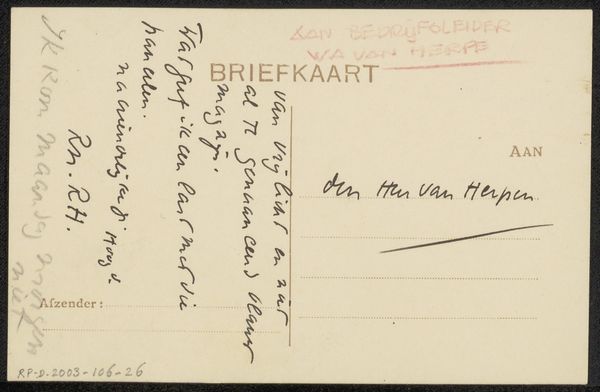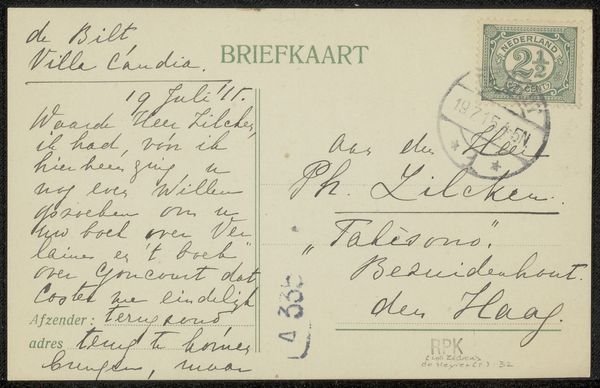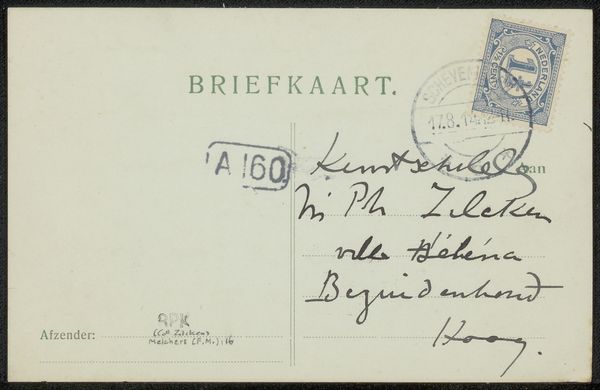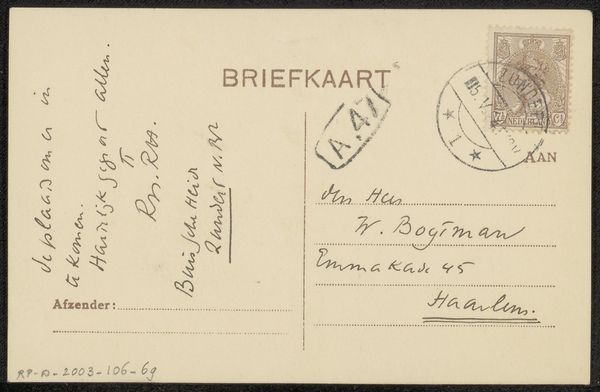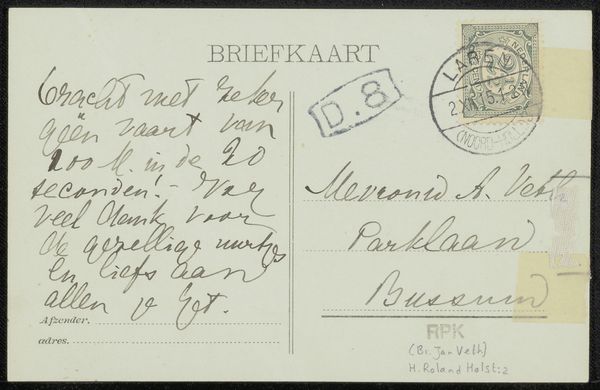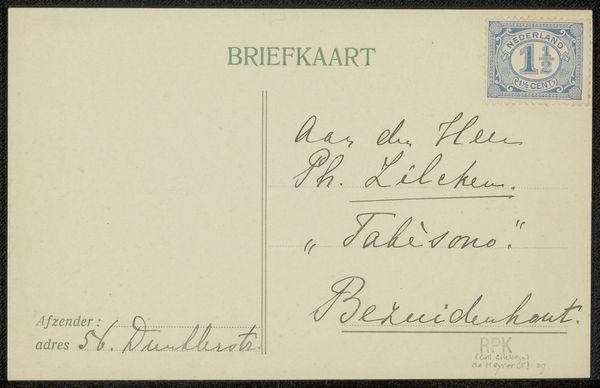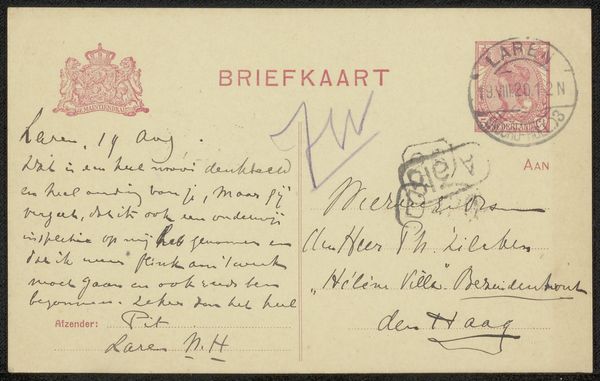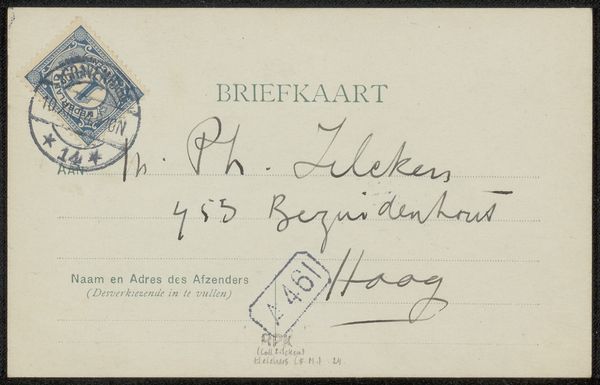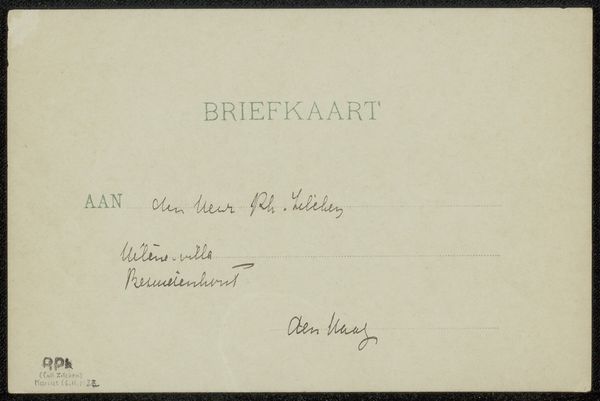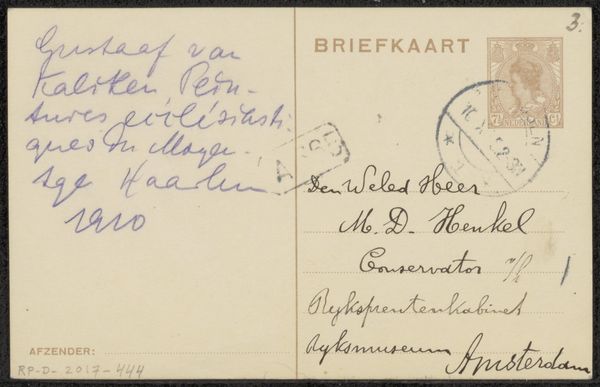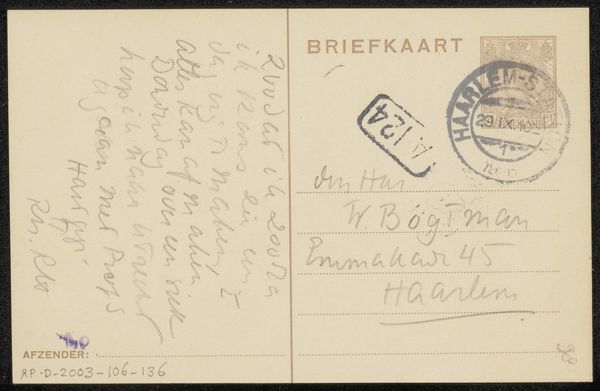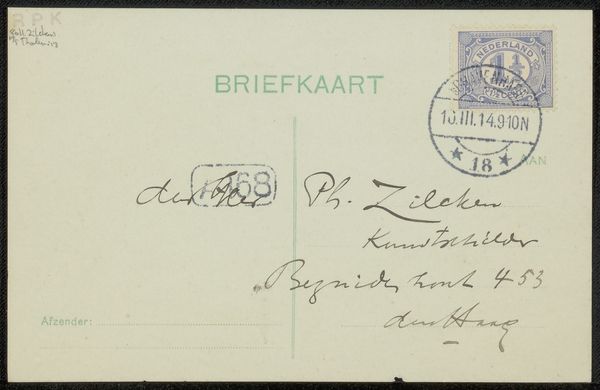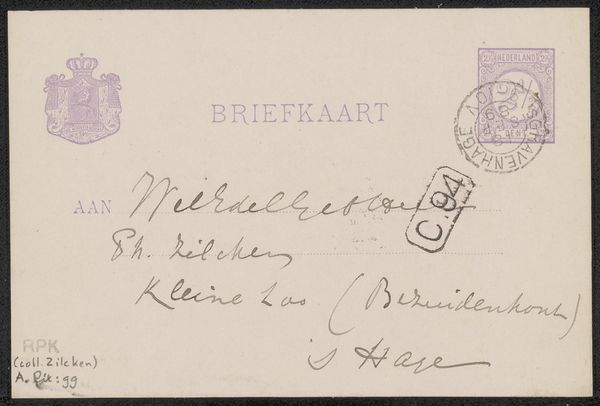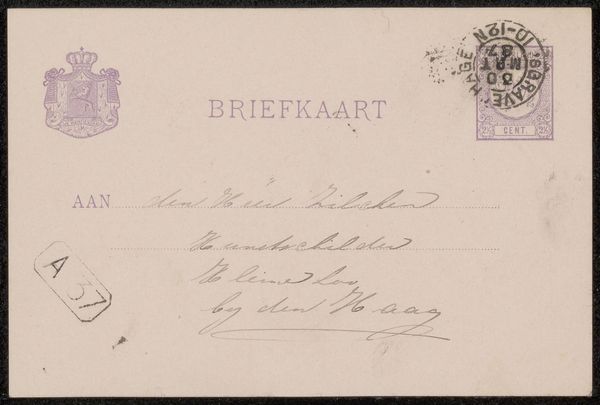
Briefkaart aan Ina van Eibergen Santhagens-Waller after 5
0:00
0:00
richardnicolausrolandholst
Rijksmuseum
drawing, mixed-media, print, paper, ink
#
drawing
#
mixed-media
#
script typography
#
hand-lettering
# print
#
hand drawn type
#
feminine typography
#
hand lettering
#
paper
#
personal sketchbook
#
ink
#
hand-drawn typeface
#
fading type
#
thick font
#
sketchbook drawing
Copyright: Rijks Museum: Open Domain
This Briefkaart, or postcard, was sent by Richard Nicolaüs Roland Holst to Ina van Eibergen Santhagens-Waller, likely in 1923. Its materials are humble, mass-produced paper stock printed with standardized text, and handwriting in blue ink. However, these materials have a unique texture and cultural significance, as they represent both personal communication and a broader industrial context. Postcards became popular in the late 19th century as an affordable means of communication, enabled by advancements in printing technology and postal services. Holst's handwritten message transforms this mass-produced object into something intimate and individualized. The act of writing, itself a form of labor, adds another layer of meaning. Holst's message, penned with care, speaks to a specific relationship and moment in time. The postcard transcends its mundane origins, becoming a tangible link between two individuals, and a reminder that even the simplest materials can carry profound social and cultural meaning. This challenges any strict division between the fine and applied arts.
Comments
No comments
Be the first to comment and join the conversation on the ultimate creative platform.
